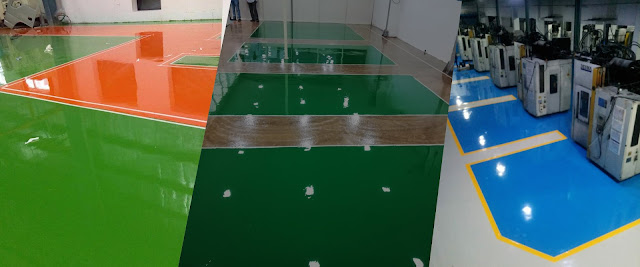Resin Flooring: A Versatile and Durable Option for Your Home or Business
Resin flooring is a popular choice for homeowners and businesses alike. This type of flooring is made from a combination of resin and a hardener, which creates a durable and versatile material that can be used in a variety of settings. In this blog, we'll explore the benefits of resin flooring and how it can be a great option for your home or business.
What is Resin Flooring?
Resin flooring is a type of flooring that's made from a combination of resin and a hardener. The mixture is poured onto the floor and left to dry, creating a smooth and durable surface. Resin flooring can be used in a variety of settings, including residential homes, commercial spaces, and industrial facilities.
Advantages of Resin Flooring
Durability
One of the biggest advantages of resin flooring is its durability. Resin flooring is resistant to damage from heavy foot traffic, furniture, and machinery. It's also resistant to scratches, dents, and other forms of damage, making it a great choice for high-traffic areas.
Easy Maintenance
Resin flooring is easy to clean and maintain. It's resistant to staining and can be easily cleaned with soap and water. Unlike other types of flooring, resin flooring doesn't require waxing or polishing, which saves time and money.
Versatility
Resin flooring is versatile and can be used in a variety of settings. It can be customized to match your home or business's aesthetic with a range of colors and patterns available. It can also be used in a variety of settings, including residential homes, commercial spaces, and industrial facilities.
Slip-Resistance
Resin flooring can be made slip-resistant, which is important in areas that are prone to wetness, such as bathrooms or commercial kitchens. Slip-resistant resin flooring helps to prevent accidents and keep your space safe.
Chemical Resistance
Resin flooring is highly resistant to chemicals, making it ideal for commercial and industrial facilities where chemicals are used on a regular basis. It can withstand spills from a wide range of chemicals, including acids, solvents, and oils, without being damaged.
Installation of Resin Flooring
The installation process for resin flooring typically involves the following steps:
Surface Preparation
The surface must be cleaned thoroughly and any cracks or damage must be repaired. This ensures a smooth and even surface for the resin to adhere to.
Primer Application
A primer is applied to the surface to promote adhesion and improve the durability of the flooring.
Resin Application
The resin is applied to the surface in several coats. The number of coats required depends on the thickness of the flooring required and the manufacturer's specifications.
Curing
The resin must cure for several days before it can be used. During this time, the surface must be kept clean and free from any foot traffic.
Conclusion
Resin flooring is a versatile and durable option for your home or business. It's resistant to damage from heavy foot traffic, furniture, and machinery. It's also easy to clean and maintain, and can be customized to match your space's aesthetic. If you're looking for a flooring solution that's strong, long-lasting, and easy to maintain, resin flooring may be the perfect choice for you. With its durability, versatility, and easy maintenance, resin flooring can be a great investment for your home or business.



Comments
Post a Comment